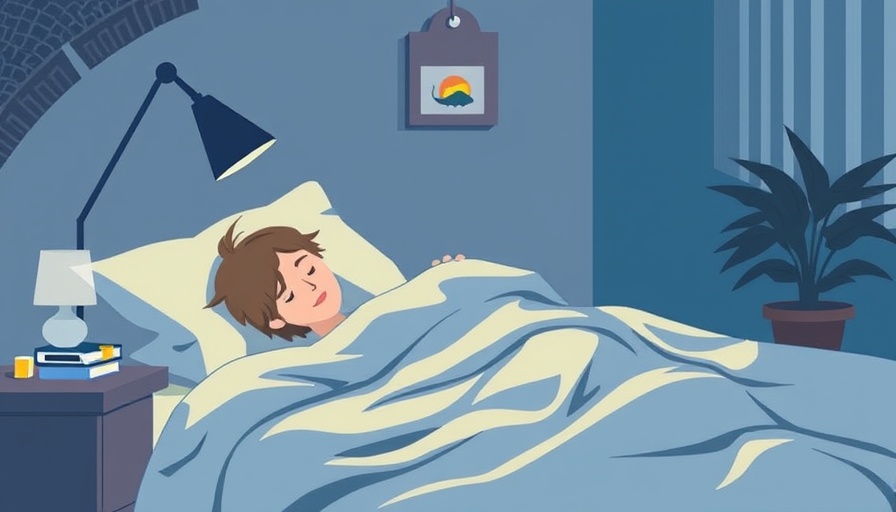
The Rise of Black-Market Melatonin: A Cry for Help
The recent surge in black-market melatonin use highlights a critical issue affecting families struggling with sleep. With NHS data revealing that over 5 million prescriptions for sleeping pills are written annually, many parents now find themselves in a precarious situation, turning to unregulated sleep aids out of sheer desperation.
In a recent letter, Vicki Beevers of The Sleep Charity emphasized the alarming reality—9 out of 10 UK adults experience sleep issues, yet only a fraction receives proper diagnosis and treatment. The daunting figures indicate that approximately 14 million people might be living with undiagnosed insomnia, showcasing a grave disconnect between demand for treatments and their availability through healthcare.
Melatonin: The Missing Piece in Sleep Solutions
Melatonin, often viewed as a quick fix, is not a recommended catch-all solution. Experts caution that unsupervised use, especially in children, poses significant risks. While many families look to melatonin as a lifeline, it’s crucial to understand the necessity of a comprehensive approach to sleep health, including non-drug interventions.
Despite ample recommendations for cognitive behavioral therapy for insomnia (CBT-I) as the first-line treatment, access remains a challenge. As pointed out by NICE, funding has not yet materialized for digital CBT-I, despite it being a cost-effective alternative. The lack of available resources forces families to make unregulated choices that can inadvertently endanger their children's health.
The Need for a National Sleep Strategy
As the number of children prescribed sleep medication skyrockets, now tripling since 2015, there is a pressing demand for a cohesive national strategy addressing sleep health. A proposed national sleep strategy would involve improving the availability of CBT-I, funding initiatives through healthcare boards, and implementing public health campaigns to enhance sleep literacy.
Furthermore, ongoing education for GPs is essential. Many practitioners are cornered into prescribing medication without a thorough understanding of alternative treatments, driving a cycle where families resort to black-market solutions.
Connecting Sleep Health to Holistic Well-being
The importance of sleep as a pillar of health cannot be overstated. Poor sleep hygiene leads to cascading effects on mental health, immune function, and overall well-being. Families engaging in holistic wellness should understand how to integrate healthy sleep practices into their daily routines. These practices might include mindfulness meditation, establishing a consistent sleep schedule, and incorporating relaxation techniques into family rituals.
Moreover, natural supplements and lifestyle changes can significantly improve sleep quality. Encouraging a balanced diet, rich in immune-boosting foods and anti-inflammatory ingredients, can also enhance sleep health. This holistic approach can provide families with tangible strategies rather than simply relying on supplements like melatonin.
Empowering Families to Make Informed Choices
Families should not feel forced to rely on subpar solutions while navigating the challenges of sleep health. By demanding better resources and a structured national sleep strategy, they can advocate for their health and well-being. Sleep is a fundamental component of life—it’s time society recognizes it as such. Parents must take proactive steps to educate themselves on sleep-related health, creating a better future for their children.
Take Action for Better Sleep
It is essential for families to unite in advocating for a national sleep strategy. By voicing concerns and modernizing sleep health approaches, meaningful change can occur. Explore ways you can support this initiative—whether through community organizations, social media, or conversations with local healthcare providers. Together, we can pave the way for healthier sleep solutions for everyone.
 Add Element
Add Element  Add Row
Add Row 



Write A Comment